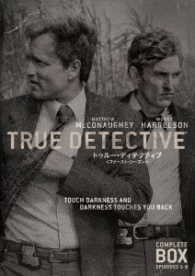- ホーム
- > 洋書
- > 英文書
- > History / World
基本説明
Shows that cattle contributed to the growth of sanctuaries in the Greek city-states, as well as changes in the economic practices of the Greeks, from the Iron Age through the classical period.
Full Description
Though Greece is traditionally seen as an agrarian society, cattle were essential to Greek communal life, through religious sacrifice and dietary consumption. Cattle were also pivotal in mythology: gods and heroes stole cattle, expected sacrifices of cattle, and punished those who failed to provide them. The Cattle of the Sun ranges over a wealth of sources, both textual and archaeological, to explore why these animals mattered to the Greeks, how they came to be a key element in Greek thought and behavior, and how the Greeks exploited the symbolic value of cattle as a way of structuring social and economic relations. Jeremy McInerney explains that cattle's importance began with domestication and pastoralism: cattle were nurtured, bred, killed, and eaten. Practically useful and symbolically potent, cattle became social capital to be exchanged, offered to the gods, or consumed collectively. This circulation of cattle wealth structured Greek society, since dedication to the gods, sacrifice, and feasting constituted the most basic institutions of Greek life.
McInerney shows that cattle contributed to the growth of sanctuaries in the Greek city-states, as well as to changes in the economic practices of the Greeks, from the Iron Age through the classical period, as a monetized, market economy developed from an earlier economy of barter and exchange. Combining a broad theoretical approach with a careful reading of sources, The Cattle of the Sun illustrates the significant position that cattle held in the culture and experiences of the Greeks.
Contents
List of Illustrations ix Acknowledgments xi A Note about Spellings and Translations xiii Abbreviations xv CHAPTER 1: Cattle Habits 1 CHAPTER 2: The Paradoxes of Pastoralism 21 CHAPTER 3: Cattle Systems in Bronze Age Greece 48 CHAPTER 4: Epic Consumption 74 CHAPTER 5: Heroes and Gods 97 CHAPTER 6: Gods, Cattle, and Space 123 CHAPTER 7: Sacred Economics 146 CHAPTER 8: Cities and Cattle Business 173 CHAPTER 9: Sacred Law 196 CHAPTER 10: Authority and Value 217 CHAPTER 11: Conclusions 241 Notes 253 Bibliography 293 Index 335








